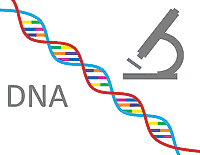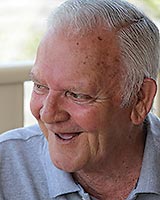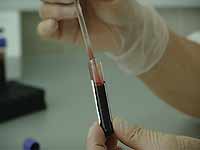The Greatest Discovery In Cancer Research ever?
by Ray Andrew, MD
|
| |
Yes, this is how Dr. Mark Rosenberg, Director of the Integrative Cancer Fellowship, once described to me his discovery of research on an obscure gene that plays a tremendous role in cancer.
 For decades, scientists have been trying to find the holy grail of cancer treatment. Chemotherapy is so problematic because it kills both cancer cells AND healthy cells. Patients with cancer have resigned themselves to tolerating horrible side effects and long-term risks—including new, untreatable cancers—with the hope of killing their current cancers. Moreover, while chemotherapy sometimes shrinks tumors and prolongs life (by a few months compared to placebo), these drugs only inhibit the daughter cells, not the stem cells. Think of it like weed-whacking instead of removing weeds by their roots. In some cases, this treatment actually stimulates the stem cells (roots) even while killing the daughter cells (the leaves). As the tumor decreases in size, the stem cells are meanwhile becoming more aggressive. For decades, scientists have been trying to find the holy grail of cancer treatment. Chemotherapy is so problematic because it kills both cancer cells AND healthy cells. Patients with cancer have resigned themselves to tolerating horrible side effects and long-term risks—including new, untreatable cancers—with the hope of killing their current cancers. Moreover, while chemotherapy sometimes shrinks tumors and prolongs life (by a few months compared to placebo), these drugs only inhibit the daughter cells, not the stem cells. Think of it like weed-whacking instead of removing weeds by their roots. In some cases, this treatment actually stimulates the stem cells (roots) even while killing the daughter cells (the leaves). As the tumor decreases in size, the stem cells are meanwhile becoming more aggressive.
The key to better cancer diagnosis and treatment is therefore to target features of cancer cells that do not exist in normal cells. A researcher from a major U.S. university discovered one such feature and published his initial findings in a cancer journal in 2009. He found a gene that, while present in all cells, is only turned on in two settings: in the embryonic stage of development, and in cancer. The protein made from this gene is required for the rapid cell division that occurs long before you are born—before you even have blood. However, this same protein is also essential for the unregulated cell growth of cancer. In other words, cancer does not exist in humans without it.
As a result of this discovery, we can now detect cancer with greater than 99% accuracy years before any other test will identify it, when the tumor is as small as 2 million cells, less than an eighth of an inch in diameter. By contrast, a tumor will not be identifiable on x-ray until it has a mass of 2 BILLION cells, which means that your annual mammogram is going to miss it for quite a few years while it grows and grows. This test doesn’t eliminate the need for Pap smears or colonoscopies, however, because these identify cells that are abnormal but have not yet become cancerous.
An additional game-changing feature of this test is that the protein is specific to the origin of the tumor. Consequently, if the protein is detectable in your bloodstream, we can tell you where it came from: breast, colon, prostate, skin, liver, lung, bone, and so forth. If you decide to undergo an imaging test, we know where to look rather than radiating your whole body looking for a needle in a haystack. If the tumor shows up, you can pursue whatever treatment you and your doctor believe will yield the best outcome at this stage in its growth.
If the tumor does not show up on standard imaging tests, you can take advantage of any number of natural approaches used worldwide to both prevent and treat cancer. Down the road, you can repeat the original blood test until the protein is no longer detectable.
 With traditional cancer treatment often costing hundreds of thousands of dollars per person, true early detection not only saves lives, but it also saves individuals, insurers, and governments A LOT of money. With traditional cancer treatment often costing hundreds of thousands of dollars per person, true early detection not only saves lives, but it also saves individuals, insurers, and governments A LOT of money.
Moreover, whether the test result is positive or negative, an additional benefit is knowing what you do not have. For example, Jane, with a concerning breast lump, was recently found to have uterine cancer but not breast cancer. Or any other cancer. Robert, with many years of elevated PSA tests but normal (albeit extremely painful) prostate biopsies, was confirmed to have prostate cancer. Mark, with the highest PSA I have ever seen, was found NOT to have prostate cancer.
In an age where half of men and a third of women will be diagnosed with cancer at some point in their lifetime, this information is priceless.
In light of the forgoing, I have to agree with Dr. Rosenberg that this is the greatest discovery in cancer research EVER. If you are concerned about cancer, worry no longer. Come in and get tested. You’ll be glad you did. |